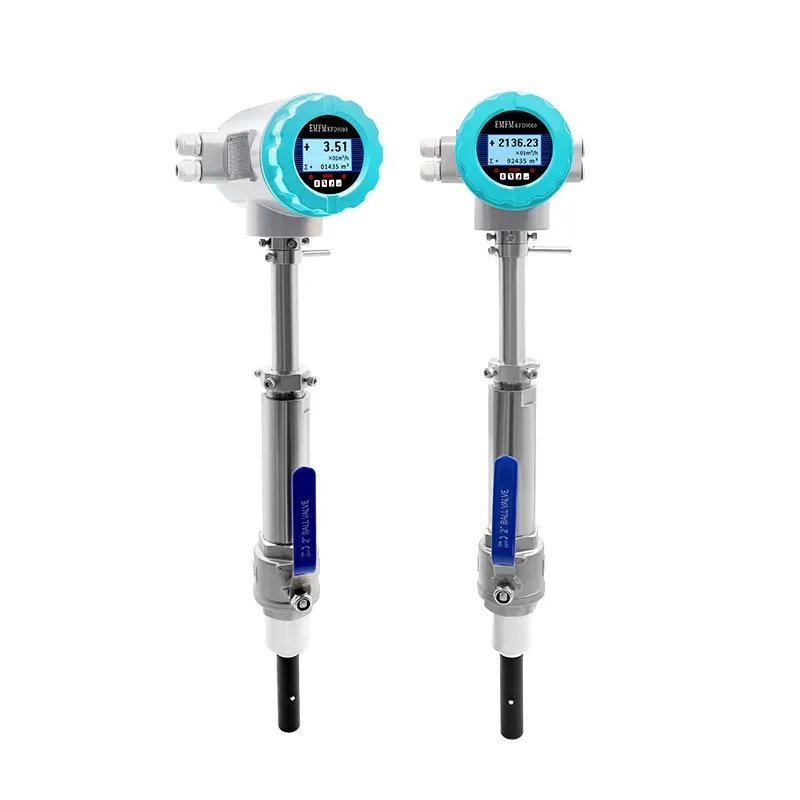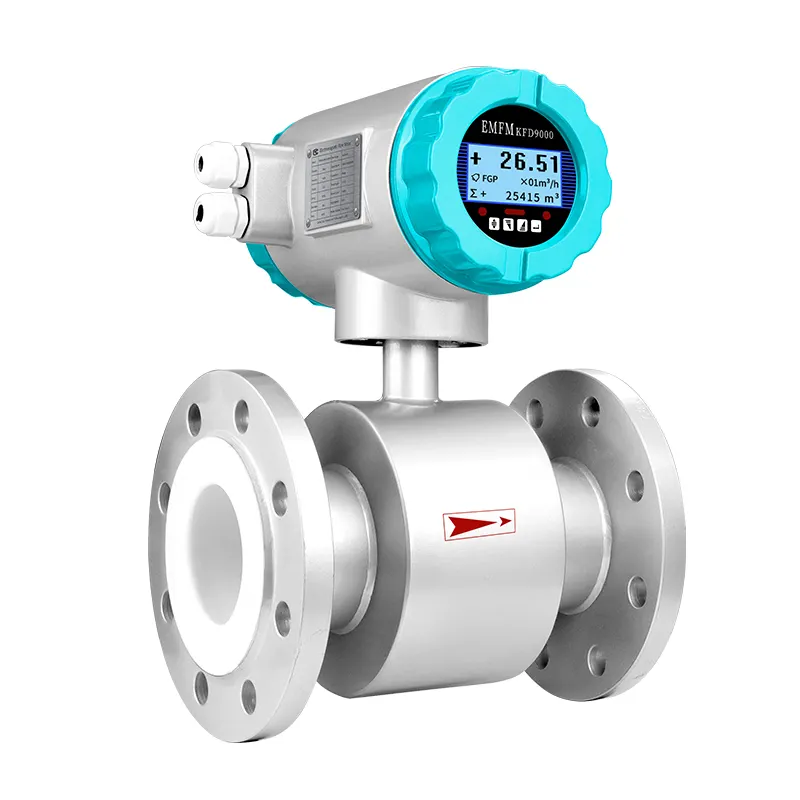Maximizing Process Efficiency in Oil and Gas
The oil and gas industry relies heavily on accurate measurement technologies to ensure safety, efficiency, and profitability. Among these, flowmeters have become a vital part of modern operations. Their ability to precisely measure the volume and rate of fluid movement—whether liquid or gas—enables companies to maintain operational integrity and optimize production. From upstream drilling to downstream refining, the application of flowmeters improves real-time decision-making and reduces waste across the entire value chain.
Enhancing Performance in Upstream Operations
Monitoring Extraction with Precision
In the upstream sector, flowmeters play a critical role in monitoring well output. By installing flowmeters at wellheads and in pipelines, operators can track oil, gas, and water volumes extracted from reservoirs. This data supports better reservoir management and helps engineers make timely adjustments to optimize yield.
Additionally, real-time flow monitoring allows early detection of anomalies like unexpected pressure drops or flow surges, which could signal leaks, equipment malfunction, or formation damage. Swift action in response to flow deviations helps minimize production downtime.
Supporting Hydraulic Fracturing and Injection Processes
Hydraulic fracturing and enhanced oil recovery techniques depend on injecting fluids at precise flow rates and pressures. Flowmeters ensure that water, chemicals, or gas injected into the wellbore meets the target specifications. Underdelivery or overdelivery of fluid can compromise efficiency and safety.
By integrating flowmeters into control systems, operators can automate and fine-tune injection processes. This leads to better fracture propagation and improved recovery rates, ultimately increasing the economic viability of the well.

Improving Midstream Transportation and Storage
Managing Pipeline Flow Integrity
Midstream operations involve the transportation of crude oil, natural gas, and refined products over long distances. Here, flowmeters are crucial for tracking the volume of fluids transported, ensuring accurate billing and loss prevention. These devices help detect leaks or unauthorized taps by monitoring flow discrepancies.
In large pipeline networks, flowmeters enable pressure balancing, helping maintain uniform flow across various segments. They also assist in controlling pump stations, reducing energy consumption and enhancing flow efficiency.
Maintaining Tank Inventory Accuracy
Flowmeters play a critical role in ensuring effective inventory management within storage facilities, particularly in large-scale operations such as tank farms and fuel depots. By precisely measuring the volume of product entering and leaving storage tanks, flowmeters provide reliable data on both inflow and outflow activities. This accurate flow measurement allows facility operators to closely monitor loading and unloading processes, whether the transfers occur within a single facility or between multiple sites. As a result, every transaction is not only recorded but also verifiable and traceable, minimizing the risk of discrepancies or loss.
In tank farm operations, the use of flowmeters is essential for preventing overfilling, which can lead to costly spillage, equipment damage, and environmental hazards. Real-time flow data helps operators maintain safe tank levels and coordinate transfer operations with greater precision. Moreover, integrating flowmeter systems with digital monitoring and control platforms enhances data accessibility, improves decision-making, and supports full transparency in operational workflows. This integration also aids in achieving compliance with increasingly stringent environmental and safety regulations, making flowmeters indispensable tools in modern storage facility management.
Advancing Efficiency in Downstream Processes
Optimizing Refinery Throughput
In refinery operations, precise flow control is essential for maintaining the stability and efficiency of highly complex and interconnected processes. These facilities manage multiple input streams simultaneously, each contributing to different stages of refining such as distillation, cracking, and reforming. Flowmeters play a crucial role in regulating the flow of feedstocks into critical units like distillation columns, catalytic crackers, and reformers. Accurate measurement and control of these flows are necessary to ensure that each unit operates within optimal parameters. Even minor fluctuations in flow rates can lead to significant downstream impacts, affecting everything from energy consumption and throughput efficiency to product quality and overall yield.
In addition to process control, flowmeters are instrumental in blending operations, where different grades of crude oil or refined products are combined to meet specific formulation requirements. Whether blending gasoline with ethanol or adjusting sulfur content in diesel, maintaining precise mixing ratios is key to ensuring the final product complies with regulatory and quality specifications. Real-time flowmeter data enables automated control systems to adjust blend ratios dynamically, improving batch consistency and reducing the risk of off-spec production. This level of precision not only enhances product reliability but also minimizes material waste and reduces the cost associated with reprocessing or disposal.
Ensuring Product Quality and Compliance
Many petroleum-derived end products—such as gasoline, diesel, and jet fuel—are subject to stringent regulatory and industry standards to ensure safety, performance, and environmental responsibility. Throughout the refining and production process, flowmeters play a vital role in maintaining product quality by precisely controlling the flow of additives, reactants, and treatment chemicals. By regulating these inputs during key processing stages, flowmeters help ensure that the final products consistently meet required specifications for octane levels, sulfur content, volatility, and other critical attributes.
Beyond quality control, flowmeters are equally important in supporting environmental compliance initiatives. They provide accurate measurement of emissions and effluent flows, including volatile organic compounds (VOCs), wastewater, and flue gases. This real-time data is essential for environmental monitoring, enabling operators to detect irregularities quickly, initiate corrective actions, and ensure that discharge levels remain within legal limits. In many jurisdictions, regulatory authorities mandate the use of certified flow measurement systems as part of routine compliance audits and environmental reporting. These systems help refineries demonstrate adherence to environmental regulations and contribute to long-term sustainability goals through improved transparency and accountability.
Supporting Digitalization and Remote Operations
Enabling Smart Field Automation
As the industry embraces digital transformation, smart flowmeters have become integral to automated control systems. These advanced flowmeters offer features like remote diagnostics, wireless data transmission, and built-in analytics.
This functionality allows operators to monitor and adjust flows in real time from central control rooms or remote locations. With fewer personnel on-site, safety improves, and labor costs decrease without sacrificing system awareness.
Enhancing Predictive Maintenance Strategies
Modern flowmeters generate data that feeds into predictive maintenance programs. Trends in flowrate deviation, pressure drop, or temperature variation can signal early signs of wear or clogging.
Maintenance teams can use this data to plan interventions before failures occur, minimizing unplanned downtime and extending equipment lifespan. Predictive maintenance not only saves costs but also enhances overall system reliability.
Frequently Asked Questions
How do flowmeters handle multiphase fluids in oil and gas?
Some flowmeters are specifically designed for multiphase measurement, using technologies like Coriolis or ultrasonic sensing. These meters can distinguish between oil, water, and gas phases.
However, accurate measurement still depends on stable flow conditions and proper calibration for the fluid mixture.
What factors affect flowmeter accuracy in harsh environments?
Temperature, pressure, and particulate matter can all influence accuracy. Choosing the right flowmeter type with appropriate materials and protective features is essential for reliability.
Regular calibration and maintenance also help maintain performance.
Can flowmeters be used in offshore platforms?
Yes, flowmeters are widely used on offshore rigs for monitoring production, injection, and export flows. Devices must be rugged and certified for marine and explosive environments.
Wireless and remote-monitoring capabilities are particularly valuable in offshore settings.
What are the benefits of integrating flowmeters with SCADA systems?
SCADA integration allows for centralized data collection, real-time monitoring, and automated control. This leads to improved efficiency, faster troubleshooting, and better compliance tracking.
It also supports historical data analysis for performance optimization.

